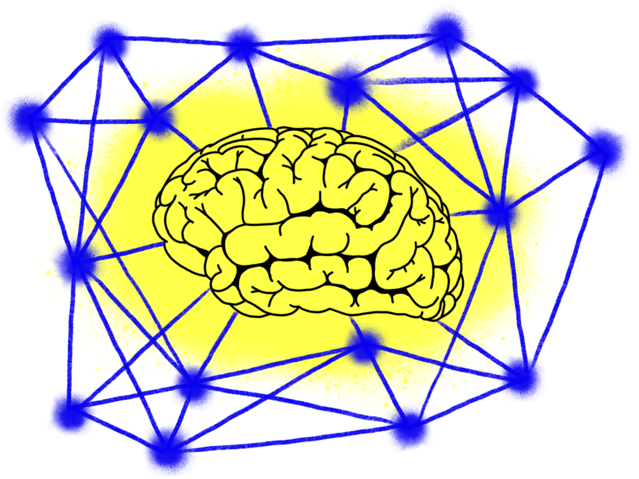Attention
The Role of Information in Consciousness
More on the relationship between information processing and consciousness
Posted February 18, 2019

The conscious experience of our surroundings involves several forms of attention, from bottom-up automatic attention to a more focused top-down attention. These forms of attention all rely on neural mechanisms that process information in a more selective manner. It’s pretty easy to see that attention operates on information.
When it comes to the phenomenal experience of consciousness, is information, and attention, necessary? We discussed the question of attention in previous posts, so we won’t go into detail here. What we will say is that attention does seem to be a big part of the conscious experience, and even in the most minimal experiences of consciousness, there seems to be some form of signal processing (whether or not it is selective attention is debatable). So a big part of consciousness inherently involves the processing of information. But is any specific type of information necessary for consciousness? Does conscious awareness depend on a type of information that is uniquely related to consciousness and to nothing else?
The first thing we need to define is ‘information’. Essentially, information involves the relaying of a message of some kind, which ideally would be processed without losing its original meaning (e.g., Shannon’s information theory deals with this reduction in uncertainty and entropy). This message can include written or verbal language, proprioceptive feedback, sounds, visual content, and other forms. In the case of human psychology, beneath all these messages are neural signals that relay this information. In the case of evolution, genes carry this information. And for machines, these signals take digital form. All of these require both the sender and receiver of the signals to share a common understanding of their meaning, which already introduces a source of errors or noise. (The interpretation of this information is a separate problem.)
If information has a functional role in cognitive processes (and even evolutionary processes), then it fundamentally has some kind of meaning. Attentional mechanisms have evolved to process environmental information in a way that supports the survival of an organism, from insects to humans. This is not very controversial. Attentional systems demonstrate the selectivity of signal processing that allowed an organism to successfully navigate in its environment (e.g., searching for food, mating). From feature detection to object recognition to tool usage, these are seen in the animal world with increasing complexity. Attention is meant to optimize the processing of information related to these tasks. Without information, it would be hard to imagine what attention would do.
The role of consciousness within all this is still debated. There is little consensus on its evolutionary purpose and whether or not it can be described in evolutionary terms. Nevertheless, there are some aspects of survival that consciousness seems to promote. Namely, the ability to empathize with other organisms (for social interactions, also seen in the animal kingdom) and the possible amplification of signals to fully engage the organism in a task (e.g., conscious attention). Think of the emotions associated with a very frightening or very pleasant situation. You don’t simply seem to be processing information or just attending to the situation. You seem to be immersed and fully engaged in it.
Information is essential to these conscious processes, further explaining the relationship between attention and consciousness and how they interact to benefit an organism. It is unclear, however, whether or not all forms of consciousness require information, as defined above. The feeling associated with phenomenal consciousness, for example, may require some signals to be processed (e.g., ambient temperature, sounds, touch) but not in a selective way (thus, not requiring selective attention). But even this seems to entail some form of information processing. These neural signals convey information that is processed within a context of understanding. This is also important when we consider the information conveyed in language, and how the coordination of this context (between the transmitter and the receiver of information) is necessary (as we had discussed previously).
We will stop here for now, but will get into more details about this topic in the next series of posts. Our aim is now to focus on the role of information in cognitive processes and in consciousness. We will explore several theories and perspectives that could help us better understand how information impacts our conscious experience and how this processing of information impacts the evolution of our species and the artifacts we create. We will illustrate all this with some characters: different types of informavores. Humans truly are omnivorous when it comes to information, and this voracity for information clearly must have played some role in our evolution. Perhaps we were not always so insatiable, even more recently in our history. Having these characters interact with each other will hopefully allow us to clarify the questions emerging from our discussion concerning consciousness and information.
— Harry and Carlos


